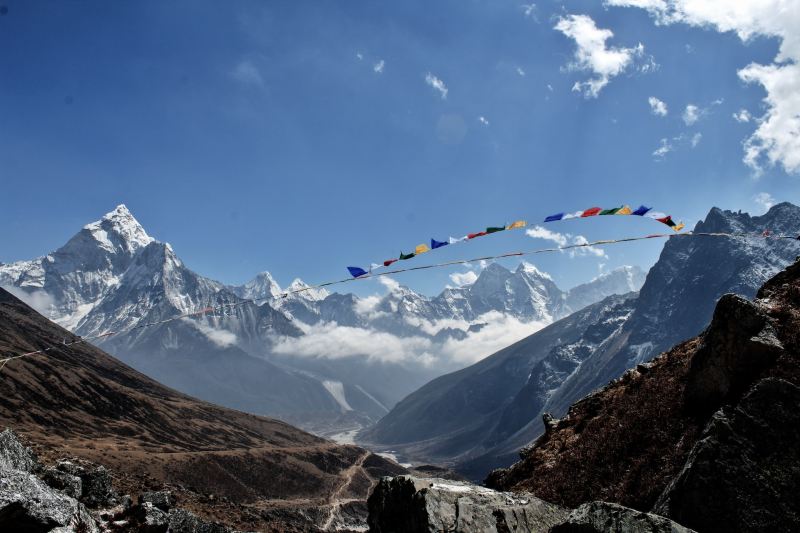
If you’re thinking about taking the weeks long trek up Mount Everest, be prepared for the mountain’s newest rule: manage your own excrement. The authorities overseeing Mount Everest are now mandating that climbers doggy-bag their own poop and bring it all back with them to base camps for proper disposal. While carrying poop is definitely gross, it’s a step in the right direction to preserving the natural beauty of these mountains and maintaining a positive experience for everyone.

Mount Everest is starting to stink
Thus far, hikers climbing Mount Everest have been relieving themselves on the trail with little regard to hygiene and safety, digging holes or, more horrifically, leaving their excrement out in the open. Hikers have reported spotting human stools on rocks along the trail, which is a huge problem because excrement does not fully degrade there due to the extreme temperatures. The trail is starting to reek like a port-a-potty, and many climbers are falling ill. The Municipal Chairman of the Everest region, Mingma Sherpa, has finally taken action.
Climbers of Mount Everest and nearby Mount Lhotse will now have to purchase specialized poo bags at base camp. These bags contain chemicals that solidify waste and reduce odor. With each climber producing approximately 250 grams of excrement daily, and spending several weeks at higher camps, the provision of these bags is seen as a critical step in managing waste. This initiative is part of a broader set of measures aimed at preserving the mountain’s environment. Upon return, these bags will be inspected to ensure compliance.
Industry and climber reactions
Expedition operators and climbers have welcomed this initiative. Dambar Parajuli, president of the Expedition Operators Association of Nepal, told the BBC that his suggestion was to start this as a pilot on Everest before extending it to other mountains. Similar practices have already been successfully implemented on other mountains like Denali.
Despite the Nepali government announcing several mountaineering rules in the past, implementation has been a challenge, mainly due to the absence of liaison officers at base camps. Now, there will be a dedicated contact office ensuring compliance.
As climbers from around the globe continue to flock to this legendary mountain, this new rule serves as a reminder of our collective duty to protect and respect the natural world. So, as you prepare for the journey of a lifetime, remember that your commitment to this new waste management practice is as crucial as your physical and mental preparation. It’s a small but significant way to contribute to the conservation of Mount Everest’s awe-inspiring landscape and ensure it remains a source of wonder and inspiration for years to come.



